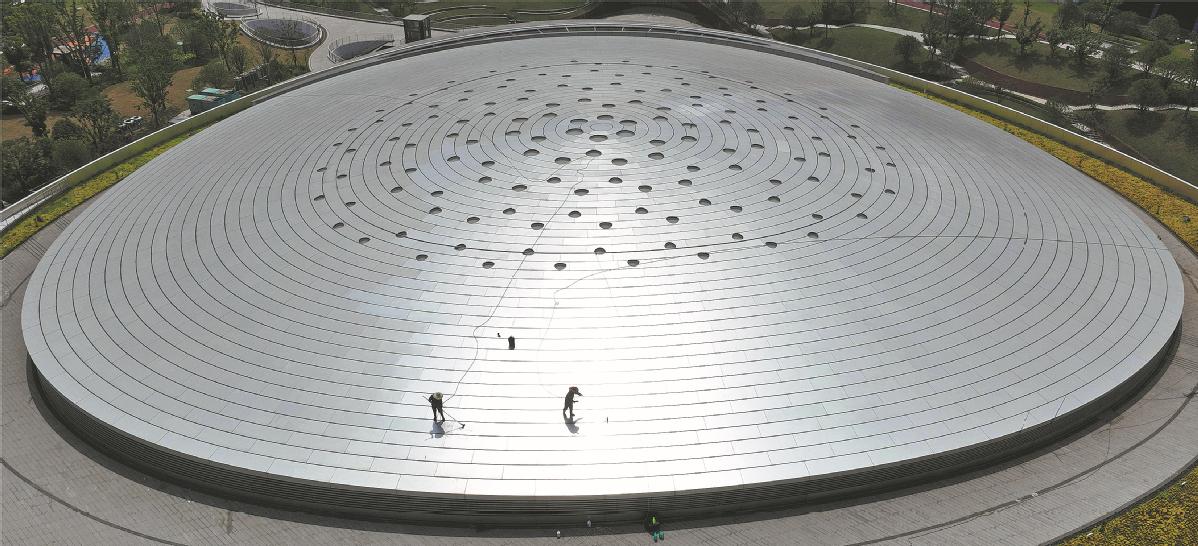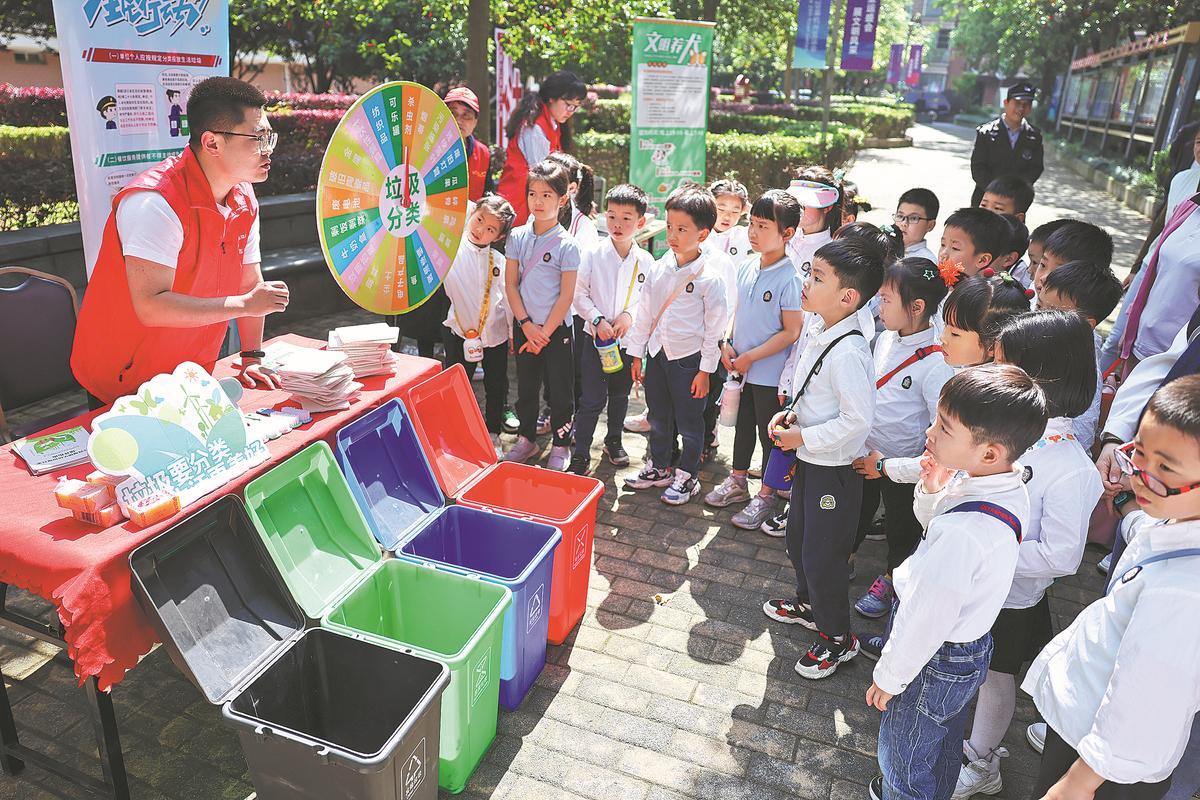Giving the Games a green and clean sheen

Clean energy sources are being used to power the Hangzhou Games. [WEI XIAOHAO/CHINA DAILY]
Hangzhou employs determination and innovation to host the first carbon-neutral Asiad
All of the 19th Asiad's competition venues are using renewable energy, according to organizers, as part of the city's mission to host the first carbon-neutral Asian Games.
Electricity sources include photovoltaic power transmitted from such areas as the Qaidam Basin in Qinghai province and the Jiayu Pass in Gansu province in northwestern China, and the Loess Plateau in northern-central China, in addition to wind power from Xinjiang Uygur autonomous region, among other places.
The term "green electricity" refers to power generation that emits little or no CO2.
Green power accounts for 220 million kilowatt-hours, reducing CO2 emissions by 115,400 tons, according to the current plan, said Chen Rong, director of the Hangzhou Games organizing committee's venue construction and management department.
Hangzhou has also been making its transportation system more environmentally friendly and promoting the use of electric vehicles.
State Grid Hangzhou Electric Power Supply Co says it has gone to great lengths to ensure that all Asian Games venues are equipped with charging facilities, bringing its citywide total to 102 charging stations and 2,024 charging ports. The company has also installed China's first high-power wireless charging station for new energy vehicles at the Asian Games Village in Hangzhou's Xiaoshan district.
The official collectable plushies of the Games' mascots are digitally printed, meaning that they do not generate wastewater, leftover fiber or gas emissions. They are also cut out using techniques powered by electricity from solar panels on the factory roof.

Workers clean solar panels. [WEI XIAOHAO/CHINA DAILY]
In fact, many of the event's licensed products have been manufactured using environmentally friendly methods, such as backpacks that are each made from 10 recycled drink bottles and frisbees fashioned from rice husks.
Hua Fang, who works for the Hangzhou Asian Games Organizing Committee's market development department, said: "Licensed merchandise serves as a distinctive keepsake of the event and also promotes the use of new concepts and technologies in product design and development."
Zhejiang's authorities launched a digital management platform on July 11 to serve the mission of hosting the first carbon-neutral Asian Games. It oversees the management of carbon emissions in six cities, and employs such functions as data collection, accounting, emissions reduction and evaluation.
A statement from the Hangzhou Asian Games Organizing Committee's environmental protection department said: "The carbon footprint of a large sporting event covers many aspects, including construction of the competition venues, transportation, accommodation, competition preparations and spectators.
"It is very difficult for humans to calculate and evaluate all this. With the platform, all we need to do is input and check raw data. Carbon emissions are automatically calculated by the system."
Meanwhile, a "low-carbon account" program has been designed for Asian Games Village residents, including athletes, technical officials, media personnel and volunteers.

Children learn how to sort recycling. [WEI XIAOHAO/CHINA DAILY]
This initiative harnesses the capabilities of Alibaba Cloud's artificial intelligence algorithms and dual carbon products to encourage low-carbon behaviors.
Residents can earn points by adopting eco-friendly practices at the village, such as recycling packaging and bottles, and refraining from using plastic shopping bags. These points can be exchanged for Asian Games memorabilia, including badges made from environmentally friendly materials.
Hangzhou resident Hu Fangfang, who has volunteered to promote waste-sorting in her community, said: "Although the challenge is a formidable one, and developing good habits takes time, I believe that, with our collective efforts, everything is moving in the right direction."
Sun Yi, an environmental protection volunteer in Hangzhou, said: "Everyone is an active participant in making the Asian Games green. It's not just about encouraging others but, more importantly, taking action in our daily lives."
Institutions, companies and individuals are encouraged to donate their carbon credits and carbon allowances for the Asian Games. Users of the Ant Forest mobile platform can donate the virtual green energy points they collect for participating in eco-friendly activities, such as taking public transportation.
